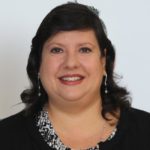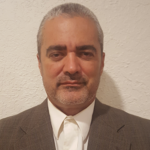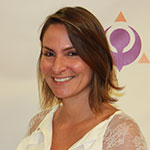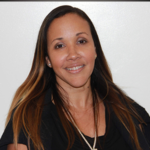Majors: Mental Health Counseling, Marriage and Family Therapy,
School Counseling, Dual Major
MASTER OF SCIENCE IN PSYCHOLOGY
The M.S. in Psychology program at Albizu University, Miami campus, prepares students to provide culturally sensitive psychotherapeutic services to diverse populations in public and private behavioral healthcare and school settings in the community.
PROGRAM OVERVIEW
The M.S. in Psychology program at Albizu University, Miami campus, trains students to become culturally competent mental health professionals who deliver effective services to diverse populations. Three majors are offered: Mental Health Counseling, Marriage and Family Therapy, and School Counseling. A dual major option is available to provide students with additional specialized training and a competitive advantage in the labor market.



Let’s chat
about your goals and how we can help you reach them.
Share with a Friend
Grant Funding Announcement
ACCREDITATION
Albizu University, founded in 1966 and established in Miami in 1980, is the first Hispanic Institution specializing in Graduate Study in Psychology in Puerto Rico, United States, and The Caribbean. Accredited by the Middle States Commission on Higher Education (MSCHE), and licensed by the Commission for Independent Education of the Florida Department of Education (CIE). The Doctoral Program in Clinical Psychology (Psy.D.) is accredited by the American Psychological Association (APA). The Master in Science in Speech and Language Pathology is accredited by the American Speech-Language-Hearing Association (ASHA). © Albizu University 2015.
CAREER OPPORTUNITIES
ADMISSION REQUIREMENTS
The application for the Master of Science in Psychology program consists of the following:
- A completed and signed application form submitted prior to the established deadline and accompanied by the $50 application fee. Begin the application process by setting up an online account.
- Official transcripts from all previous undergraduate and graduate (if applicable) institutions attended, showing that the following conditions have been met:
- A GPA of 3.0 or higher is required. Completed applications are reviewed on a case-by-case basis for those whose academic credentials do not meet the minimum requirements but whose cumulative undergraduate GPAs are at least 2.50. In that situation, enrollment may be recommended at the discretion of the Admissions Committee, but a GPA of 3.00 must be maintained in the first semester in order to retain enrolled student status.
- The transcripts should include any degree received. A bachelor’s degree from an accredited institution of higher education in the United States is required. Applicants enrolled in an institution of higher education outside the United States whose standards of training are substantially equivalent to the standards of training of those institutions in the United States will also be considered.
- Three letters of recommendation—at least two of which should be from current or past professors and one of which may be from a supervisor.
- A current curriculum vitae summarizing the applicant’s credentials.
- A Statement of Purpose, which should be double-spaced, typed, and one page in length, articulating interest in the field, career goals, and how you expect AU to contribute to such goals.
- Proof of appropriate immigration status for all international students. International students should also submit an official evaluation of academic credentials by an authorized agency. The credentials must include the GPA. For detailed information on this requirement, please refer to the Credential Evaluation Services page of the Albizu website. All admission credentials for international students must be received by Albizu University at least 90 days prior to the beginning of the session of expected enrollment.
Founded in 1966, Albizu University is the first professional school of psychology established in North America and the Caribbean, with an ongoing focus on serving culturally diverse populations.

Expert Faculty
Our courses are taught by professors who are both academics and active professionals. Faculty members bring to the classroom a working expertise in theories, research, and practice in their fields.

A Strong Heritage
Founded in 1966 Albizu University is the first professional school of psychology established in North America and the Caribbean.

Flexibility
Albizu University offers morning, afternoon, evening, and night classes to provide you with the flexibility and convenience you need to meet all of life’s demands. Online classes and programs are also available.
FACULTY TESTIMONIALS

“The Master of Science in Psychology program with majors in Mental Health Counseling, Marriage and Family Therapy, and School Counseling includes a dual major option to provide students with a competitive advantage in the labor market. Our faculty are practicing professionals whose approach to education is student-centered. Our extensive practicum sites network allows for enriching field experiences during the final phase of training. Graduates of our program render culturally sensitive services in a variety of public and private settings in the community in consonance with the value of promoting social justice espoused by the founder of the university, renowned psychologist Dr. Carlos Albizu Miranda”
-Dr. Diana Barroso
Professor and Director, Master’s in Psychology Programs

“One of the things that I appreciate about being a member of the faculty in the Master’s in Psychology programs is that, in addition to imparting excellent clinical techniques and approaches to our students, we also teach them real-life skills that will serve them well when they begin to practice. For example, in one of the classes that I teach, Counseling in Community Settings, students design a mental health prevention project, write a grant proposal to fund it, and identify potential foundations that may award funding for their projects. In another one of our classes, Mental Health Care Systems, our students are able to identify how behavioral care is impacted by health care systems as well as federal and state laws. They discuss topics including insurance, electronic health records, and how the integration of behavioral and primary care affects our field. Once our students graduate and are actively practicing, they often comment about the importance of having acquired abilities that improve their day-to-day practices.”
-Dr. Isabel Medina
Assistant Professor, Master’s in Psychology Programs
STUDENT TESTIMONIALS

“Albizu University is the best university for people who work hard and have a difficult schedule in their regular lives. I am a mother of three adult boys and grandmother of two beautiful kids. I am a single mother and self-employed. Because of this, I am in the best place. The staff of Albizu University Miami campus is so kind and helpful; they guide you on every step that you need. The professors are not only professionals but also human beings who help their students with so much passion. I recommend Albizu University for everyone who wants to have a successful future.”
-Yadira Sosa, student majoring in Mental Health Counseling

“I am honored to say I received my master’s degree in School Counseling at AU this past semester. Small classes and knowledgeable professors really helped to enhance the student experience. Coming from an undergrad university where students sit in an auditorium of 50 or more students can make you feel like just a number. This is not the case at AU, where staff from security guard to professors knew my name and made me feel like I was at home. The family atmosphere can’t be replaced; it is a unique attribute that AU provides. I’m just grateful I made the decision to be a part of this great university. “
-Tyrone Thompkins, student majoring in School Counseling

“Albizu University is a great school to attend. Since day one, all the staff has been very professional and helpful. Whether it was the admissions department, financial aid department, or the support staff, they have always been prompt to respond and answer any questions I had. The professors and their aides are extremely knowledgeable and have real-life therapy experience. The master’s program classes do not start until afternoon, allowing the students to work fulltime at their current jobs while attending school. I also appreciate the option to take the classes on different days of the week, some even on Saturdays. The smaller classes at AU provide higher learning quality through a lower student/ teacher ratio but also ensure camaraderie and fun. AU has definitely exceeded my expectations, and I would highly recommend this school to anyone who cares about up-to-date quality education in pursuit of their career.”
Michal Muransky, student majoring in Mental Health Counseling

“As a student at AU, I feel very lucky because I have had incredible professors who give me a lot of individual attention. They call me by name and truly care about me and my progress in the course. I feel like I am not just a number and every professor has taken their time to get to know me and help me with issues I encounter. I feel like the education I am having will truly prepare me when I am ready to work in the industry. “
Marina Flores, student majoring in Marriage and Family Therapy
LEARN WITH THE BEST
COURSES

MAJOR IN MENTAL HEALTH COUNSELING
The M.S. in Psychology program with a major in Mental Health Counseling trains you to become a mental health counselor who provides culturally relevant counseling, assessment, and consultative interventions in public and private mental health care systems. You will acquire a broad knowledge base and develop the skills to diagnose and treat disorders as well as to promote optimal mental health.
In addition to the core curriculum, the following courses are required:
- Human Sexuality and Sexual Dysfunctions (PSYM563)
- Career Development and Assessment (PSYM513)
- Group Counseling (PSYM520)
- Individual Assessment and Appraisal (PSYM657)
- Family Therapy: Theory and Practice (PSYM562)
- Mental Health Care Systems (PSYM599)
- Counseling in Community Settings (PSYM682)
The program is committed to providing personal attention to your professional growth throughout the course of your studies. The faculty members are active professionals who bring to the classroom a working expertise in theories, skills, techniques, research, and practice in their fields. The program’s extensive practicum placement network offers an ample choice of sites in the tri-county area (Miami-Dade, Broward, and Palm Beach), including community mental health agencies, hospitals, treatment facilities, and schools.
Afternoon, evening, and Saturday classes make the adaptation to academic life less difficult if you hold a full-time or part-time job. Some courses are also available partially or fully online. The small student-faculty ratio enhances learning by creating classroom environments where you will be encouraged to engage in critical thinking and hone your skills to meet the needs of a diverse clientele upon graduation.
Graduates of the program are eligible for licensure as Marriage and Family Therapists in the state of Florida through the Florida Department of Health’s Board of Clinical Social Work, Marriage and Family Therapy, and Mental Health Counseling. Each state board sets its own requirements for licensure, although those requirements are generally similar. National certification is also available through the National Board for Certified Counselors.
Graduates typically find employment in a variety of public and private mental health services settings. These include community mental health agencies, hospitals, public and private social services agencies, shelters for special populations, inpatient and outpatient treatment facilities, school-based programs, substance abuse treatment programs, hospice centers, colleges and universities, and private clinical practice.
Curriculum
Requirements to earn the degree with this major include 51 academic credits and 10 practicum credits, a cumulative GPA of 3.00, and the successful completion of the comprehensive examination.
This clinical course focuses on discussion and integration of the major concepts and theories in individual counseling, with emphasis on utilizing culturally empathic interviewing and counseling skills.
The historical, cultural, theoretical, and research contributions to the understanding of biological, cognitive, social, and emotional aspects of human development are covered in this course.
This course focuses on the acquisition of multicultural competencies essential to counseling, assessment, and consultation with African American, American Indian, Asian American, Hispanic, disabled, and alternative lifestyle populations.
This course covers the ethical standards, legal issues, and codes of conduct that form the basis of professional behavior of counseling professionals. Guidelines established by professional organizations such as ACA, AMHCA, and AAMFT are discussed. Emphasis is placed on multicultural counseling and addressed through case vignettes.
This course presents a comparative study of the major scientific and philosophical explanations of personality and their application to the counseling process. The influence of sociocultural variables on the development of personality and behavioral characteristics are considered.
This clinical course covers psychophysiological, psychosocial, and cross-cultural approaches to models of deviant behavior. Major categories of disorders as well as strengths and weaknesses of the DSM classification system are discussed.
This course covers the basic principles of research methodology and statistical analyses as applied to needs assessment, the proposal and implementation of research, report development, and program evaluation. Ethical and multicultural issues pertaining to these topics are addressed.
This course will present theories pertaining to the etiology of alcoholism and drug addiction and current models for prevention of such conditions. The main focus will be the acquisition of skills to conduct assessments and implement relevant treatment models in a variety of multicultural and diverse settings. Individual, family, and group therapy modalities will be examined.
This pre-practicum course offers an opportunity to develop interpersonal skills and self-awareness through the mechanisms of self-disclosure and feedback in a supportive group setting. Opportunities to interact with individuals from culturally diverse backgrounds and to explore attitudes that may affect the counseling situation are provided.
The clinical practica in Mental Health Counseling provide an opportunity to integrate and apply theories, models, and skills through the provision of mental health services. The roles and functions of the mental health counselor will be performed under supervision in multicultural human services settings in the community. Both field-based and program-based supervision are components of the practicum experiences. Program-based supervision (PYMH 631, PYMH 632, and PYMH 633) is provided by a faculty member during the field experiences.
The clinical practica in Mental Health Counseling provide an opportunity to integrate and apply theories, models, and skills through the provision of mental health services. The roles and functions of the mental health counselor will be performed under supervision in multicultural human services settings in the community. Both field-based and program-based supervision are components of the practicum experiences. Program-based supervision (PYMH 631, PYMH 632, and PYMH 633) is provided by a faculty member during the field experiences.
The clinical practica in Mental Health Counseling provide an opportunity to integrate and apply theories, models, and skills through the provision of mental health services. The roles and functions of the mental health counselor will be performed under supervision in multicultural human services settings in the community. Both field-based and program-based supervision are components of the practicum experiences. Program-based supervision (PYMH 631, PYMH 632, and PYMH 633) is provided by a faculty member during the field experiences.
MAJOR IN MARRIAGE AND FAMILY THERAPY
The M.S. in Psychology program with a major in Marriage and Family Therapy trains you to become a systemic therapist who provides an array of culturally specific therapeutic interventions to individuals, couples, and families in public and private clinical services settings. You will develop the diagnostic skills and therapeutic techniques needed to address the dynamics of dysfunctional couples and families and to facilitate growth.
In addition to the core curriculum, the following courses are required:
- Theories and Techniques in Marital Therapy (PSYM658)
- Individual and Family Assessment and Appraisal (PSYM661)
- Human Sexuality and Sexual Dysfunctions (PSYM563)
- The Individual and Family Life Cycle (PSYM678)
- General Theories of Family Systems and Psychology (PSYM653)
- Family Therapy: Theory and Practice (PSYM562)
- Mental Health Care Systems (PSYM599)
The program is committed to providing personal attention to your professional growth throughout the course of your studies. The faculty members are active professionals who bring to the classroom a working expertise in theories, skills, techniques, research, and practice in their fields. The program’s extensive practicum placement network offers an ample choice of sites in the tri-county area (Miami-Dade, Broward, and Palm Beach), including community mental health agencies, hospitals, treatment facilities, and schools.
Afternoon, evening, and Saturday classes make the adaptation to academic life less difficult if you hold a full-time or part-time job. Some courses are also available partially or fully online. The small student-faculty ratio enhances learning by creating classroom environments where you will be encouraged to engage in critical thinking and hone your skills to meet the needs of a diverse clientele upon graduation.
Graduates of the program are eligible for licensure as Marriage and Family Therapists in the state of Florida through the Florida Department of Health’s Board of Clinical Social Work, Marriage and Family Therapy, and Mental Health Counseling. Each state board sets its own requirements for licensure, although those requirements are generally similar. National certification is also available through the National Board for Certified Counselors.
Graduates typically find employment in a variety of public and private mental health services settings. These include community mental health agencies, hospitals, public and private social services agencies, shelters for special populations, inpatient and outpatient treatment facilities, school-based programs, substance abuse treatment programs, hospice centers, colleges and universities, and private clinical practice.
Curriculum
Requirements to earn the degree with this major include 45 academic credits and 7 practicum credits, a cumulative grade point average of 3.00, and the successful completion of the comprehensive examination.
This clinical course focuses on discussion and integration of the major concepts and theories in individual counseling, with emphasis on utilizing culturally empathic interviewing and counseling skills.
This clinical course covers theoretical approaches, techniques and methods, leadership styles, multi-cultural perspectives, and developmental stage theories. Research pertinent to growth enhancing group dynamics is discussed.
This course focuses on the acquisition of multicultural competencies essential to counseling, assessment, and consultation with African American, American Indian, Asian American, Hispanic, disabled, and alternative lifestyle populations.
This course covers the ethical standards, legal issues, and codes of conduct that form the basis of professional behavior of counseling professionals. Guidelines established by professional organizations such as ACA, AMHCA, and AAMFT are discussed. Emphasis is placed on multicultural counseling and addressed through case vignettes.
This course presents a comparative study of the major scientific and philosophical explanations of personality and their application to the counseling process. The influence of sociocultural variables on the development of personality and behavioral characteristics are considered.
This clinical course covers psychophysiological, psychosocial, and cross-cultural approaches to models of deviant behavior. Major categories of disorders as well as strengths and weaknesses of the DSM classification system are discussed.
This course covers the basic principles of research methodology and statistical analyses as applied to needs assessment, the proposal and implementation of research, report development, and program evaluation. Ethical and multicultural issues pertaining to these topics are addressed.
This course will present theories pertaining to the etiology of alcoholism and drug addiction and current models for prevention of such conditions. The main focus will be the acquisition of skills to conduct assessments and implement relevant treatment models in a variety of multicultural and diverse settings. Individual, family, and group therapy modalities will be examined.
This course covers theoretical approaches to family dynamics, structure, and change with consideration of cross-cultural variations in interaction patterns and processes. An examination of general system theory with emphasis on dysfunctional behavior and its homeostatic role in the psychosocial system of the family is presented.
This clinical course focuses on discussion of theories and techniques of major and evolving models of family therapy. Family interviewing techniques, genograms, and the assessment of clinical cases from various theoretical perspectives are emphasized. The clinical aspects of cultural and ethnic values in family and personal development are also reviewed.
This course surveys the historical, economic, and political aspects of public and private mental health care systems. Treatment formats and philosophies, procedures for accountability, and role functions of managed care service providers are reviewed. Legal, ethical, and professional guidelines to operate in current health care environments are discussed. Multicultural contexts are highlighted.
This clinical course covers therapeutic techniques drawn from theoretical models in the field of marital therapy. Emphasis is placed on developing a practical framework for understanding the couple relationship and intervening to effect changes. Postmodern concepts and cultural issues are explored.
This course examines transactions in individual and family development from physiological, psychological, socio-cultural, and research perspectives. The application of developmental theory to therapeutic practice is emphasized.
This course focuses on the use of formal assessment measures to appraise familial parameters including behavioral problems, developmental impasses, cultural contexts, economic and social influences, individual dynamics, and interactional patterns and structures.
This course reviews the biological and psychological determinants of psychosexual dysfunction, the anatomy and physiology of human reproductive systems, and psychosexual development from infancy through old age. Cultural variations in sexual beliefs, practices, homosexuality, heterosexuality, bisexuality, transsexuality, and AIDS and other sexually transmitted diseases are discussed.
This pre-practicum course offers an opportunity to develop interpersonal skills and self-awareness through the mechanisms of self-disclosure and feedback in a supportive group setting. Opportunities to interact with individuals from culturally diverse backgrounds and to explore attitudes that may affect the counseling situation are provided.
The clinical practica in Marriage and Family Therapy provide an opportunity for the integration of theories, models, techniques, and strategies through the provision of supervised therapeutic services to individuals, couples, and families in multicultural human services settings in the community. Both field-based and program-based supervision are components of the practicum experiences. Program-based supervision (PYMF 631 and PYMF 632) is provided by a faculty member during the field experiences.
The clinical practica in Marriage and Family Therapy provide an opportunity for the integration of theories, models, techniques, and strategies through the provision of supervised therapeutic services to individuals, couples, and families in multicultural human services settings in the community. Both field-based and program-based supervision are components of the practicum experiences. Program-based supervision (PYMF 631 and PYMF 632) is provided by a faculty member during the field experiences.
MAJOR IN SCHOOL COUNSELING
The M.S. in Psychology program with a major in School Counseling trains you to become a guidance counselor who provides culturally relevant counseling and the consultative interventions required to meet the developmental, remedial, and preventive needs of children and adolescents. You will be prepared to seek employment in public or private school settings.
In addition to the core curriculum, the following courses are required:
- Principles, Philosophy, Organization, and Administration of Guidance (PSYM607)
- Counseling Children and Adolescents (PSYM624)
- Nature and Needs of Exceptional Children (PSYM604)
- Consultative Interventions (PSYM608)
- Career Development and Assessment (PSYM513)
- Group Counseling (PSYM520)
The program is committed to providing personal attention to your professional growth throughout the course of your studies. The faculty members are active professionals who bring to the classroom a working expertise in theories, skills, techniques, research, and practice in their fields. The program’s extensive practicum placement network offers an ample choice of public schools in the Miami-Dade and Broward counties, as well as several charter and private schools.
Afternoon, evening, and Saturday classes make the adaptation to academic life less difficult if you hold a full-time or part-time job. Some courses are also available partially or fully online. The small student-faculty ratio enhances learning by creating classroom environments where you will be encouraged to engage in critical thinking and hone your skills to meet the needs of a diverse clientele upon graduation.
Graduates of the program are eligible for certification in Guidance and Counseling (Grades PK-12) in the state of Florida through the Florida Department of Education. A teaching certificate is also required. Each state sets its own requirements for certification, although those requirements are generally similar.
Graduates typically find employment in a variety of public and private school settings. These include public and private pre-K, elementary, secondary, and high schools, as well as charter schools.
Curriculum
Requirements to earn the degree with this major include 42 academic credits and 7 practicum credits, a cumulative grade point average of 3.00, and the successful completion of the comprehensive examination.
This course covers the concepts and skills related to the administration and interpretation of methods of appraisal across interest, aptitude, and personality domains and their utility in culturally diverse school counseling situations.
This clinical course focuses on discussion and integration of the major concepts and theories in individual counseling, with emphasis on utilizing culturally empathic interviewing and counseling skills.
The historical, cultural, theoretical, and research contributions to the understanding of biological, cognitive, social, and emotional aspects of human development are covered in this course.
This course focuses on the acquisition of multicultural competencies essential to counseling, assessment, and consultation with African American, American Indian, Asian American, Hispanic, disabled, and alternative lifestyle populations.
This course covers the ethical standards, legal issues, and codes of conduct that form the basis of professional behavior of counseling professionals. Guidelines established by professional organizations such as ACA, AMHCA, and AAMFT are discussed. Emphasis is placed on multicultural counseling and addressed through case vignettes.
This course presents a comparative study of the major scientific and philosophical explanations of personality and their application to the counseling process. The influence of sociocultural variables on the development of personality and behavioral characteristics are considered.
This clinical course covers psychophysiological, psychosocial, and cross-cultural approaches to models of deviant behavior. Major categories of disorders as well as strengths and weaknesses of the DSM classification system are discussed.
This course will present theories pertaining to the etiology of alcoholism and drug addiction and current models for prevention of such conditions. The main focus will be the acquisition of skills to conduct assessments and implement relevant treatment models in a variety of multicultural and diverse settings. Individual, family, and group therapy modalities will be examined.
This course covers theories, concepts, and skills related to vocational choice processes. The use of tests and other appraisal procedures in career counseling and development with diverse populations is addressed.
This clinical course covers theoretical approaches, techniques and methods, leadership styles, multi-cultural perspectives, and developmental stage theories. Research pertinent to growth enhancing group dynamics is discussed.
This course provides an integration of theory and organization of guidance functions in the school system. Emphasis is placed on the professional counselor’s roles and accountability, individual and group work, consultation, and crisis intervention with diverse populations.
This clinical course covers the major theoretical approaches, assessment techniques, and interventions with diverse child and adolescent populations. Research concerning the efficacy of sampled interventions is reviewed.
This clinical course covers the basic concepts and skills related to the identification and educational adaptation of children who differ significantly from the normal child in their physical, psychosocial, mental, sensory, or communication abilities. Cultural and social implications are also discussed.
This course focuses on concept and skill development for general intervention strategies, direct and indirect intervention practices, and preventive services for diverse populations. The integration of theory, psychopathology, techniques, and research into effective consultation reports and intervention plans is stressed.
This pre-practicum course offers an opportunity to develop interpersonal skills and self-awareness through the mechanisms of self-disclosure and feedback in a supportive group setting. Opportunities to interact with individuals from culturally diverse backgrounds and to explore attitudes that may affect the counseling situation are provided.
The School Counseling practica provide an opportunity to perform the roles and functions of the professional school counselor under supervision in a school setting. Both field-based and program-based supervision are components of the practicum experiences. Program-based supervision (PYSC 631 and PYSC 632) is provided by a faculty member during the field experiences.
The School Counseling practica provide an opportunity to perform the roles and functions of the professional school counselor under supervision in a school setting. Both field-based and program-based supervision are components of the practicum experiences. Program-based supervision (PYSC 631 and PYSC 632) is provided by a faculty member during the field experiences.
DUAL MAJOR OPTIONS
If you wish to do so, you may declare two majors upon admission or add another major to your primary one during the course of your studies. Typically, a second major requires completion of three to five additional core courses and practicum requirements. Detailed curriculum worksheets for each combination are available at the Master in Psychology Programs Office. Both majors are listed on your transcript upon degree completion.
FREQUENTLY ASKED QUESTIONS (FAQs)
Applicants will be considered academically eligible to apply for admission if they earned a Bachelor degree with a cumulative grade point average (GPA) of 3.00 or above from an accredited institution of higher learning. Completed applications may be reviewed on a case by case basis if the academic credentials of the applicant do not meet the minimum requirement, but his or her cumulative undergraduate GPA was at least 2.50. Enrollment may be recommended at the discretion of the Master’s Programs Admissions Committee. In those cases, a GPA of 3.00 must be maintained in the first session in order to retain matriculation status.
Class size ranges from eight to twenty students.
Students can apply and be admitted to start in any session of their choice.
No. The university does not require students to take the GRE to be admitted into the Master of Science in Psychology.
You may complete your application online or attend an Open House event on campus. For additional assistance, contact the Recruitment Director, Ms. Gabriela Fontan, at gfontan@albizu.edu.
The three majors are Mental Health Counseling, Marriage & Family Therapy, and School Counseling. The Mental Health Program requires completion of 61 credits, the Marriage & Family Therapy 52 credits, and School Counseling 49 credits. While some foundation courses are taken by all students (i.e. Counseling Theories & Practice, Theories of Personality), other courses are designated for a specific major to meet state requirements for licensure. In addition, the practicum hours required by each of the three different majors is different due to state requirements (Mental Health students complete 1,000 hours of practicum, Marriage & Family students complete 450 hours, and School Counseling students complete 240 hours.)
Applicants can apply for dual major status. Students would have to complete the coursework for each of the majors but are not required to repeat courses that are required by both programs. Both sets of practicum hours would be needed to completed to obtain the dual major designation on the official transcript.
Students can request to schedule a meeting with an advisor to discuss their interest in the second major. The advisor will inform the students of the additional coursework that will be required by the second major as well the change to their practicum requirements. The Dual Major change / add form is approved by the Program Director.
Students enrolled as a dual major student can write a letter to the Program Director to request a change of status. The letter should indicate that the student is currently enrolled as a dual major student and list both majors. The letter should indicate the sole major that the student would like to remain enrolled in after the change of status has occurred.
In order to receive your diploma, a dual major student must complete all the requirements of both majors. Please refer to the academic calendar to determine the last day to apply for your diploma.
Graduates typically find employment in a variety of public and private mental health and marriage & family therapy service settings, and public and private schools. These include community mental health agencies, shelters, inpatient and outpatient treatment facilities, school based programs, substance abuse treatment centers, hospice, higher education centers and private clinical practices.
Yes, there are. The Master’s in Psychology Programs department is implementing its second HRSA grant. The U.S. Department of Health and Human Services (HRSA) has awarded AU funding for its Behavioral Health Workforce Education and Training for Professionals (BHWET) four year project (2017-2021). The purpose of the project is to develop and expand the behavioral health workforce serving populations across the lifespan, including persons in rural, vulnerable and/or medically underserved areas.
Students who are eligible to start practicum may apply for a stipend of $10,000 for the duration of their practicum placement at an integrated behavioral healthcare site
Up to a maximum of six (6) transfer credits may be applied towards the terminal Master’s degree. Courses which have been completed more than five (5) years prior to the date for which the student applies for admission to the University can only be transferred with the approval of the Program Director. There is no time limit for the transfer of credits from completed degrees at CAU or other accredited institutions. Only courses completed at an accredited institution of higher learning and passed with a grade of “B” or better (3.00 on a 4.00 scale) will be eligible for transfer. The official course descriptions and syllabi will be required for the evaluation process.
The Master of Science in Psychology is designed to meet the needs of working individuals. Courses run for 2 ½ hours once a week for 15 weeks and are mostly held in the evening. Generally a course will begin at either 6 p.m. or 8:30 p.m. Some courses are scheduled from 3:30 – 6:00 p.m. Some courses are offered on Saturdays. Partially online and fully online courses are also available.
The university has three sessions held during each calendar year, Spring, Summer, and Fall sessions. The Spring session typically runs from January through April, the Summer session runs from May to August, and the Fall session runs from September through December.
In order to maintain their matriculation status, students are expected to attend each of the sessions consecutively.
Students can request to take a leave of absence. The student will fill out an institutional leave agreement form which will need to be approved by the Program Director. Once signed, the student will take the form to the Finance Department and pay the corresponding fee. The leave of absence is only good for one session. The Program Director may approve up to three leaves of absence. Any additional leave of absences will require the approval of the Chancellor.
Depending on how much work has been completed for the course, a student can contact their professor and request to receive an incomplete grade for the course. If your professor grants you an incomplete grade for the course, you will have until the end of the next session that follows the semester for which the incomplete grade was submitted to complete any required coursework. If you should require additional time beyond the next session, you will have to submit a petition to the Dean of Students to request an extension.
Another option could be that you fill out a withdrawal form for the course as long as it is within the established deadline for withdrawals for a given session. Please be aware that if you are receiving financial aid, you may not to be able to obtain financial aid for the same course at a future point.
Each of the three majors has been assigned a specific advisor to assist you with issues related to your academic progress. In the event that your academic advisor is not available to assist you on a given date or time, another advisor may be able to assist you.
You can contact either the Administrative Assistants to schedule an appointment with your advisor by calling 305-593-1223 ext. 3130 or ext. 3207.
The university’s website is located at http://www.mia.albizu.edu. Students can click on the button marked “Discover CAU ” and select policies, procedures and consumer information. The page will contain information about the university, its history, and policies and procedures available as downloadable files.
There is no specific number of credits that a student needs to take to be eligible for Financial Aid. However, students who are enrolled on a full time basis will receive a larger amount of Financial Aid than those students who are considered part time. Students at the Master level need to be taking a minimum of six credits per session to be considered full time. Please consult with the Financial Aid office if you have any further questions.
There is a sequence table that is available in hard copy at an information rack just outside the office or online which provides the listing of the courses. Students should complete the courses in the first three blocks of the sequence table in order to be eligible to begin practicum. Students should consult their advisors each session prior to registration.
Students should attend the practicum orientation the semester before they are planning to begin their practicum. The orientation is held over several days usually during the third week of each academic session to allow students the flexibility to attend when it bests works with their schedules. The dates of the practicum orientation are listed on the academic calendar under “Master’s Practicum Orientation”. Students should contact the office to inform that they are planning to attend and indicate which specific day they are planning to attend. The department maintains an extensive practicum sites network in the tri-county area (Miami-Dade, Broward, West Palm Beach).
Students can always attend the orientation. The disadvantage to not informing the office ahead of time that you are planning to attend the orientation will be that there will not be a degree audit that was previously prepared for you. In addition, the packages that are prepared for the orientation take up several pages and given the fact that the orientation only lasts for one hour may not allow adequate time to print you an additional package for your use at the orientation.
The university publishes an academic calendar. It includes all the important dates and deadlines for a given session. For example, registration periods for upcoming sessions, when classes begin, midterm and final exam dates, deadlines for applying for graduation or leave of absence, holidays, etc.
There is a bulletin board located in the departmental wait room displaying information about upcoming events. Events at the university conducted / hosted by the Master’s in Psychology Programs are displayed in the glass display class outside the departmental area. In addition, announcements will be posted online, on the university website, and the students’ web portal.



















